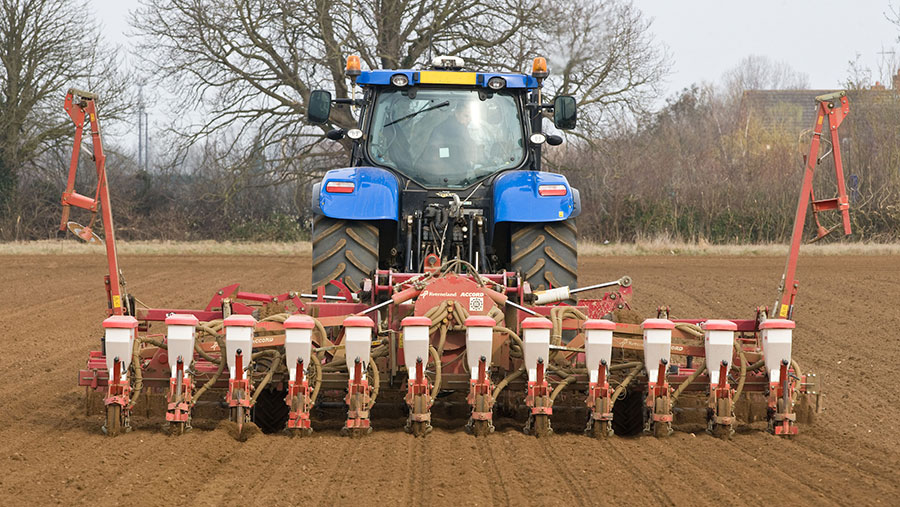Contribution of farming is overlooked, says report
 © Tim Scrivener
© Tim Scrivener Commercial agriculture is being “written out” of emerging government policy by a focus on environmental measures rather than food production, says a report.
The study was published by the Commercial Farmers Group – a farmer-funded independent think tank of growers, livestock producers and academic experts.
As well as producing food, farmers generate employment and have the potential to help mitigate climate change, says the document.
See also: Oxford 2020: Are ‘alternative farming’ systems now the norm?
But they are being systematically excluded from emerging policy in the rush to push environmental enhancement above all else.
Clear labelling
The report also argues that UK farmers should be ready and willing to compete with food imports – provided there is clear labelling to identify differences in standards.
Group spokesman and Suffolk farmer James Black said fewer than 10% of farming businesses currently produced over half the UK’s agricultural output.
These businesses were ideally-placed to stimulate local economies, support wider industries and the issue of greenhouse gas emissions, he said.
But he added: “They can only do this if allowed the chance.”
Poor delivery
“Unfortunately, UK history is littered with the results of so many great aspirational concepts which have been poorly delivered – because policy makers have not fully engaged with the people most involved in the implementation.
“We must avoid food and farming becoming a casualty of this too.”
Commercial farmers should be seen as the solution, not the enemy, said Mr Black, who runs a pig and arable business near Stowmarket.
With their efficiency based on evidence-based decision-making and best practice, farmers structured their operations to make optimal use of their natural resources.
Where they were already engaged in delivering environmental benefits and public goods, they did so with accountability towards the outcomes.
Changing demands
“In short, they can quickly bring about change through capability, data, scale and technology, to meet changing market demands,” he added.
The report provides a number of examples of areas where commercial farming can help to improve the success of future farming policy.
These include the ability to use resources efficiently with fewer emissions – and provide land and capital to invest in renewable energy technologies, it says.
Other actions – including land improvement and biodiversity projects – can also help stimulate rural development and contribute to the food and drink sector.
Defra response
A Defra spokesperson said: “We are transforming British farming to not only protect our environment for future generations, but also ensure our farmers can remain productive and competitive.
“Our future farming policy will provide critical investment in technology and skills to improve productivity – ensuring farmers can continue to produce high-quality food whilst reducing their impact on the environment.”
